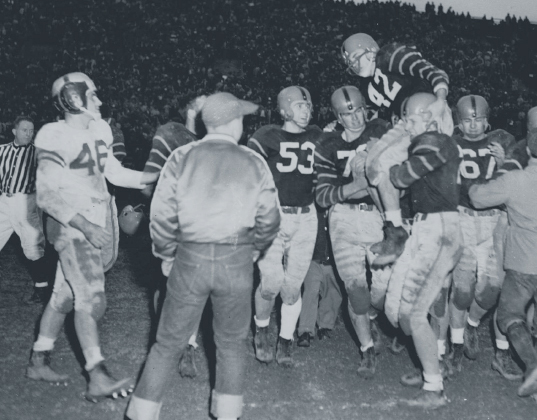3.7 POSTSCRIPT
Printed Page 104
POSTSCRIPT
POSTSCRIPT

POSTSCRIPT
We began this chapter with an account of a football game marked by brutality and accusations of unfair play and an examination of its perceptual aftermath. Following the Dartmouth-Princeton game, fans from both sides felt the opposition had played dirty and that their own team had behaved honorably. Although there was only one game, fans perceived two radically different contests.
When you observe the “game film” of your own life, how often do you perceive others as instigating all of the rough play and penalties you’ve suffered while seeing yourself as blameless? Do you widen the perceptual gulf between yourself and those who see things differently? Or do you seek to bridge that divide by practicing and communicating empathy?
More than 60 years ago, two teams met on a field of play. Decades later, that game—and people’s reactions to it—remind us of our own perceptual limitations and the importance of overcoming them. Although we’ll never agree with everyone about everything that goes on around us, we can strive to understand one another’s viewpoints much of the time. In doing so, we build lives that connect us to others rather than divide us from them.